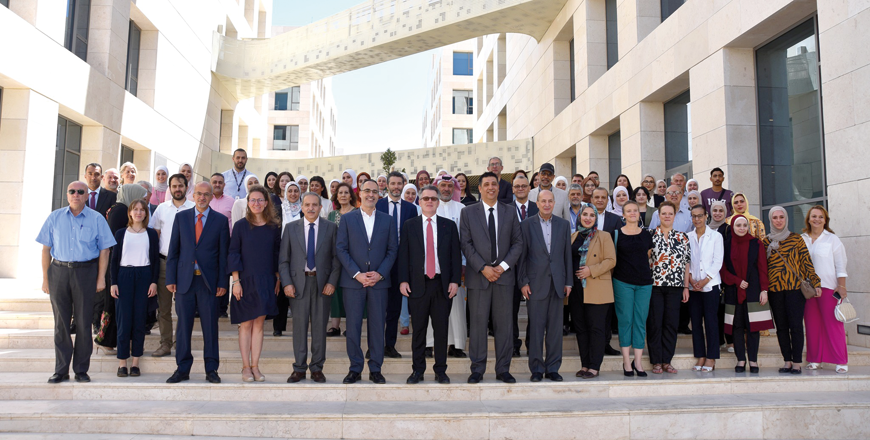The idea to revamp downtown Amman started after one of the winter season floods, said Farah Al Saoudi who with Karim Musallam presented the project “Downtown Amman Archaeological Park” at the 7th Heritage and Archaeology Diwan, held on Saturday and Sunday at Al Hussein Technical University in Amman.

“The area around the Roman Nymphaeum and the Husseini Mosque in the city centre is a very sensitive part of Amman,” Saoudi said, noting that due to topography Amman is very hilly and prone to flooding.
Flooding had been happening during Roman times, Saoudi said, adding that the project must strike a balance between archaeology underground and people’s need on the ground.
“To protect archaeological sites from the weather, we created a system where the water is collected and goes to the reservoir underneath,” Musallam said.
Talking about Ottoman archaeology in Jordan, Lauren Erker from the University of Bonn said that there is an issue with accurate dating of the late Islamic sites partly due to continued occupation of these sites.
“There is a lack of historical documentation from the 16th century until the Tanzimat period in 1850,” Erker added.
Ottoman sites are often not under the same archaeological investigation as some older sites, Erker noted.
Certain archaeological sites attract large numbers of tourists like Petra, Jerash, Umm Qais and the Roman Theatre, he said.
“Many of the more modern sites are multi-period and village histories tend to be forgotten,” Erker continued, “as Jordan has an array of villages built in the Ottoman and the British Mandate periods.”
In her presentation on Amman Heritage Houses, Rudaina Al Momani said that social and economic perspectives should be taken into account regarding heritage buildings.
According to UNESCO’s classification, two categories of values are stipulated: Cultural values and contemporary socio-economic values.
To gather data, she and her team checked written sources, visited houses and conducted in-person interviews with owners.
“Books, reports, stories and photos were part of the collected data. This stage is essential to know where to start,” Momani said.
--
Source: the Jordan Times.
